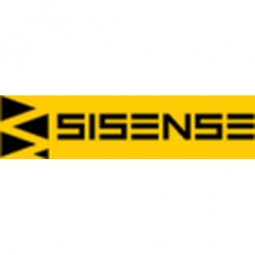Customer Company Size
Mid-size Company
Region
- America
- Asia
- Europe
Country
- United States
- Israel
- Netherlands
Product
- Sisense ElastiCube
- Sisense Dashboards
Tech Stack
- MySQL
- Google Docs
- Google Spreadsheets
- Google Analytics
- Hadoop
Implementation Scale
- Enterprise-wide Deployment
Impact Metrics
- Productivity Improvements
- Customer Satisfaction
- Digital Expertise
Technology Category
- Analytics & Modeling - Real Time Analytics
- Analytics & Modeling - Big Data Analytics
- Application Infrastructure & Middleware - Data Exchange & Integration
Applicable Industries
- E-Commerce
Applicable Functions
- Business Operation
- Product Research & Development
- Sales & Marketing
Use Cases
- Process Control & Optimization
- Real-Time Location System (RTLS)
Services
- System Integration
- Software Design & Engineering Services
About The Customer
Fiverr is a global online services marketplace offering services starting at five dollars and going up to thousands of dollars. With close to 4 million services and offices in New York, Tel Aviv, Miami, Los Angeles, and the Netherlands, Fiverr is transitioning from a startup to a full-fledged corporation. The company employs 170 people and has a dedicated team of data analysts for BI. Fiverr uses Sisense Business Intelligence for reporting across all departments, including product, marketing, PR, business development, and upper management. The company’s strength lies in its ability to develop features that its audience needs and loves, using BI as a fundamental element of their development process.
The Challenge
Fiverr needed quick insights on growing data. The company wanted to connect data from MySQL with data from Google Docs, Spreadsheets, and Analytics to better track user actions on their website and mobile app. As users increased, so did Fiverr’s data needs, making it larger and more complex with millions of rows a day from various sources. Despite using an internal big data system based on Hadoop, the data complexity made it difficult for the team to build reports and dashboards quickly. Fiverr’s senior BI director, Slava Borodovsky, emphasized the need for real-time results due to the dynamic nature of their data. The product department relied heavily on BI to determine their product roadmap, making the need for data more urgent as departments began understanding its impact on their success.
The Solution
Fiverr chose Sisense over traditional BI vendors due to its ease of use and ability to handle large, complex data sets. Sisense enabled Fiverr to combine multiple large data sources and gain complete transparency into their website and mobile app activities. The platform allowed Fiverr to run reports with over 20 queries and see real-time results within seconds. Sisense’s ElastiCube made it easy to manage data with almost zero maintenance. The platform’s drag-and-drop feature for joining data sources enabled company-wide adoption, allowing all departments to independently build reports and dashboards. Sisense dashboards are displayed on TV monitors across all departments, increasing awareness and motivation to meet goals.
Operational Impact
Quantitative Benefit

Case Study missing?
Start adding your own!
Register with your work email and create a new case study profile for your business.
Related Case Studies.

Case Study
Digital Transformation of Atlanta Grout & Tile: An IoT Case Study
Atlanta Grout & Tile, a Tile, Stone & Grout restoration company based in Woodstock, Georgia, was facing challenges with its traditional business model. Despite steady growth over the years, the company was falling behind the web revolution and missing out on the opportunity to tap into a new consumer base. They were using independent software from different vendors for each of their department information and workforce management. This resulted in a lot of manual work on excel and the need to export/import data between different systems. This not only increased overhead costs but also slowed down their response to clients. The company also had to prepare numerous reports manually and lacked access to customer trends for effective business decision-making.

Case Study
IFFCO Boosts IT Performance and Innovates Agriculture with Oracle Cloud
Indian Farmers Fertiliser Cooperative Ltd. (IFFCO), the world’s largest manufacturer and marketer of fertilizers in the cooperative sector, was facing several challenges in its quest to innovate and improve the livelihood of farmers in India. The organization had recently launched a new product, nano urea, which brought new demands to IFFCO’s cloud computing needs. The organization needed a reliable cloud vendor to support the processes of 6–7 new manufacturing plants during the upcoming year, enhancing its production capability 300–350 million bottles of nano urea to meet increasing demand. IFFCO’s cloud adoption was driven by a need to innovate. The organization wanted capabilities for a dynamic business that can adapt to the changing needs of the market while growing fast. However, it was inhibited by rigid on-premises data center deployments and the overhead of maintaining legacy systems. IFFCO wanted to apply the elasticity and availability of cloud for improving overall performance of applications at lowest possible operational overhead. Lastly, IFFCO needed to provide the benefits of its technology to all its stakeholders, including employees, members, transporters, and farmers, some of whom have limited literacy. To accommodate all stakeholders, IFFCO wanted to add a voice interface to its applications.
Case Study
7-Eleven Philippines Enhances Customer Support with Freshdesk
7-Eleven Philippines, a pioneer of 24-hour convenience stores in the country, was facing challenges with its customer support system. The customer support was outsourced to an external vendor, which resulted in limited visibility into customer query patterns and performance metrics. The company had no transparency into the vendor's analytics and could not validate their reports. They also had no visibility into the volume of calls, number of abandoned calls, etc. due to the use of the vendor’s telephony solution. This lack of control and visibility into customer support led the team to decide to bring the entire function in-house. They began exploring helpdesk solutions that would enable them to build a strong in-house support team.

Case Study
Cloud4com: Delivering Efficient and Secure SAP HANA Cloud Services
Cloud4com, a leading provider of IT infrastructure and data center services, recognized the challenges and costs companies face when upgrading their on-premises infrastructure to meet the demands of SAP HANA in-memory technology. With the introduction of SAP HANA and SAP's decision to end support for all other databases from 2025, Cloud4com saw an opportunity to expand its services to a larger customer base. However, SAP HANA is a resource-intensive technology that requires companies to deploy powerful and costly hardware platforms. Businesses often overspecify the hardware, resulting in underutilization within the software's lifecycle. To capitalize on the opportunity presented by SAP HANA, Cloud4com aimed to create a cost-effective cloud platform for HANA and began working on obtaining the SAP Tailored Datacenter Integration (TDI) certification. A critical element was selecting the right operating system that would meet SAP’s standards and maximize the availability and performance of their customers’ SAP landscapes.
Case Study
BrewDog's Customer-Centric Approach in Times of Uncertainty
BrewDog, a Scottish-born craft beer business, faced a significant challenge during the COVID-19 pandemic. With their bars closed, the company saw a surge in online orders and customer inquiries. The customer service team, which handles all e-commerce customers and general brand-related queries, was overwhelmed with the sudden increase in activity. The team was dealing with up to 2000 tickets a day during the lockdown, a significant jump from the usual 150-200 tickets. The fast-paced nature of BrewDog's operations, with new projects and initiatives launching daily, further complicated the situation. The company's existing processes, which were fairly manual, were not equipped to handle this surge in volume. The challenge was to quickly adapt and streamline their customer service operations to continue providing excellent service during these uncertain times.

Case Study
Global Timeshare Company Accelerated Its Digital Marketing and E-commerce Engine
The client's go-to-market teams weren't accustomed to attracting new buyers in the digitally networked world. These prospects come from an evolving demographic — millennials and Gen Z who were increasingly adopting the new ways of evaluating options online and making reservations.There were three key challenges that the client was facing.Outdated and aging systems (legacy core)Inadequate web presence and e-Lack of predictive customer understanding and analytics







